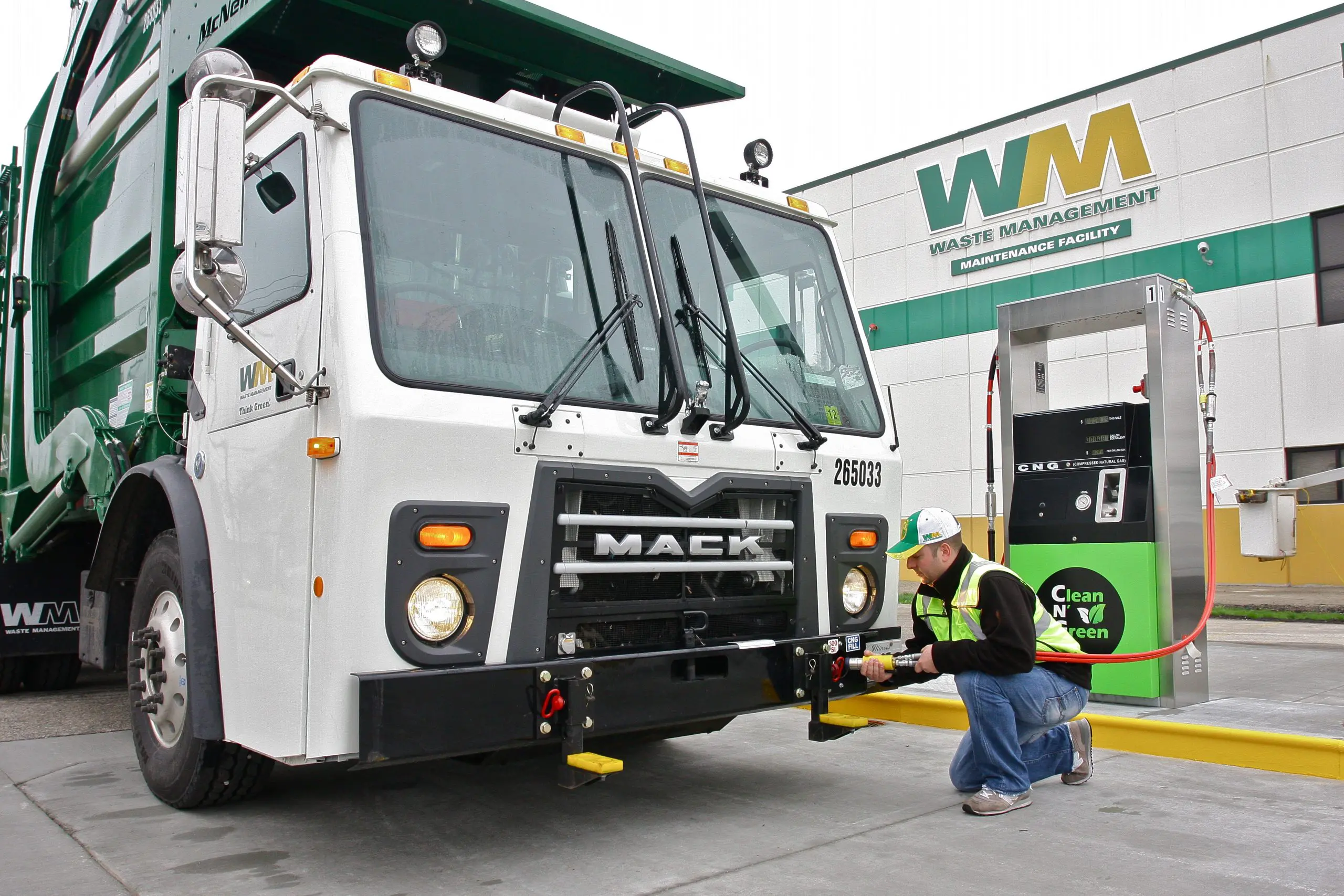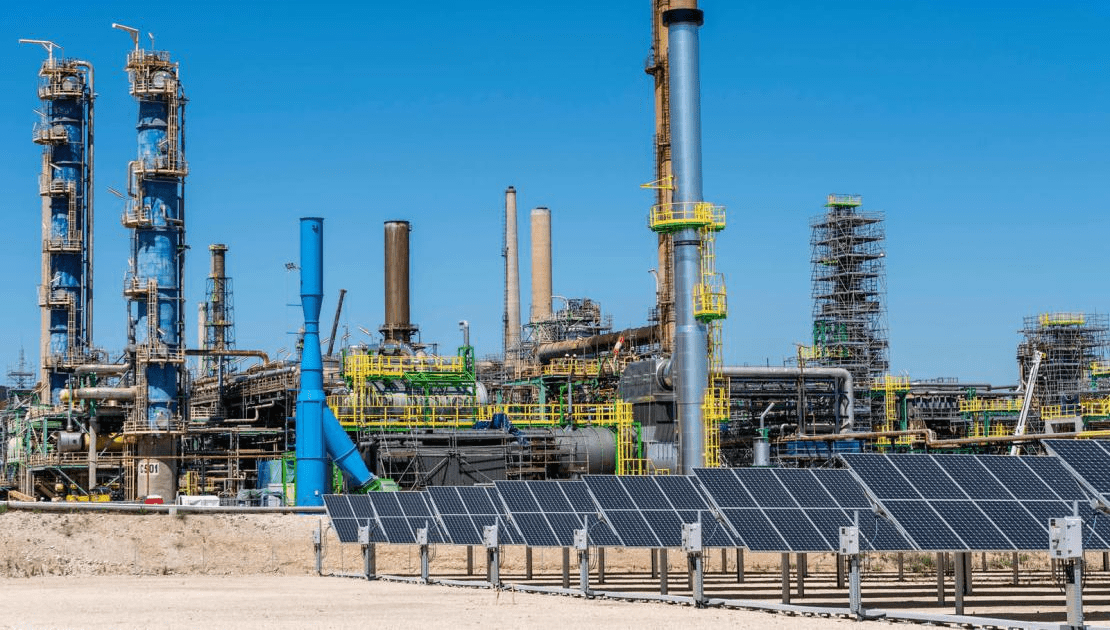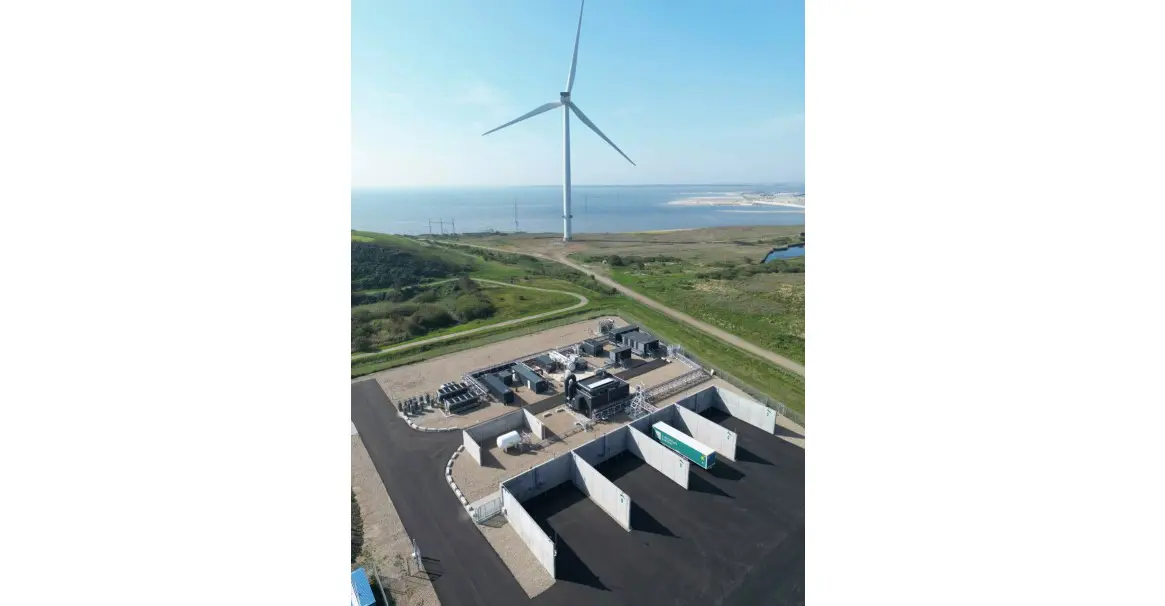
Sustainable Waste

Waste Management is the largest integrated waste collection, transportation, and storage company in the United States. CEO Jim Fish sat down at WasteExpo to discuss ESG efforts in the waste industry, including the potential to reuse waste in various industries once it’s been collected.
The topic at hand isn’t glamorous by any means, but it’s incredibly important. Waste is something none of us really want to think about but it’s a big detriment to the environment. More than just recycling, the proper management of landfills, such as reducing methane leaks, can have far-reaching impacts on cutting emissions. In April, Bloomberg did a piece on a leaky landfill in Bangladesh that was emitting about 8818 pounds (4000 kg) of methane per hour, which is the equivalent of running 190,000 traditional cars. In June, PBS published an article about satellites helping to measure methane leaks from pipelines, oil fields, landfills, and farms. Methane leaks are common in outdated infrastructure or facilities that were built out of haste. It’s understandable that Bangladesh, with its rapidly rising population, would build infrastructure out of pure necessity rather than with environmental protection in mind.

Fish argued that the North American waste industry gets underappreciated in terms of its ESG impact. “I would argue that this industry is the most sustainable industry on planet Earth,” said Fish. “This industry, in Canada, the United States, in North America, I would argue has done a better job of keeping us clean than any other industry.”
The Post Collection Side
Constructing environmentally conscious landfills is one thing, but what happens to the waste once it’s collected? The post collection piece of the story is where you and I, and companies like Waste Management, can do much better. Fish noted that upwards of 90% of the plastic that Waste Management collects gets put in a landfill. Granted, not all of it can be recycled, but still, there’s a lot of recyclable plastic that goes straight into the ground instead of being reused.
Waste Management’s sustainability efforts include expanding its recycling program, integrating compressed natural gas (CNG) trucking fleets, and trying to create a business out of using waste. However, Fish was upfront about the fact that Waste Management and its partners can only invest in sustainability if the customer is willing to pay for it. If the process adds too much cost and raises the price to a point where demand decreases, then margins would compress, leading to less profit to the detriment of shareholders.

The Difference Between Improving Mechanical And Chemical Processes
Fish mentioned that Waste Managing gets approached by chemical companies like LyondellBasell and Dow Chemical all the time to try and use sustainable feedstocks in their chemical processes. It’s a good idea, but Fish indicated he thinks that chemical processes are going to be harder to source reused plastics than a mechanical process.
“There is a difference between a chemical process and a mechanical process and one of the big differences that tends to get overlooked by those guys, those guys being companies like ExxonMobil, is they need a very clean stream to do a pyrolysis process for example,” said Fish. “I’d much rather do a mechanical process. First off, the plant is a lot less expensive than building a chemical plant, and secondly, I don’t have to have a clean 99% pure plastics product coming in, because that then implies I’m going to have a to do a lot of sorting. I can do it, but then I’m going to pass that through to you as the consumer. If you’re PepsiCo, and you want to use recycled material in your bottles, then suddenly the cost of recycled (product) is three times the cost of virgin, you’re going to say, ‘look I want to be sustainable but I’m not going to charge my shareholders 3X.’”

Waste Management just promoted Tara Hemmer to a new role as Senior Vice President and Chief Sustainability Officer to help lead a team devoted to sustainability. It’s unclear what exactly their projects are going to be, but it’s a step in the right direction to show the company is interested in making a business out of using the “product” it has in its landfills.
Environmental Justice
Fish also talked a lot about environmental justice, which is a topic that sometimes gets overlooked in the ESG conversation. For Waste Management, environmental justice would mean building landfills away from lower income neighborhoods, being cognizant about the location of hauling companies, and thinking more about how the entire business is operating in terms of not just the climate but the people its impacting.
Aside from the location of physical assets, Fish sees potential to improve the human component of environmental justice. One way is to create jobs in lower income neighborhoods and incentivize high school graduation by making a diploma a requirement for employment. Waste Management is headquartered in Houston, which has generally poor graduation rates from high schools in lower income neighborhoods. Landing a decent paying job outside of high school is a step toward upward mobility that is becoming easier in today’s remote work environment. Fortune 100 companies like Waste Management can now organize their workforce in such a way that is freer flowing and less dependent on massive hubs. This level of flexibility can potentially create better employment opportunities. “It’s an avenue out of the inner city and today their avenues are limited,” said Fish. “I personally think that if you think of the people aspect of environmental justice, that’s a huge people aspect. It’s not just assets.”









